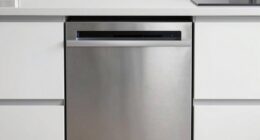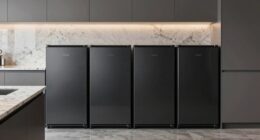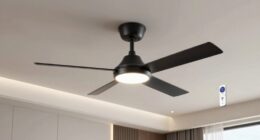To effectively identify which electric appliances use the most electricity, it is crucial to have a thorough understanding of the different devices typically found in homes. This understanding is especially important for those looking to efficiently manage their energy usage.
By identifying the appliances that contribute significantly to electricity usage, one can make informed decisions to optimize energy efficiency and reduce costs. This article aims to shed light on the appliances that have the highest energy consumption, including air conditioners, water heaters, clothes dryers, electric furnaces, electric stoves and ovens, electric kettles, space heaters, pool pumps, and electric vehicles.
By recognizing these power-intensive appliances, individuals can take proactive steps towards a more sustainable and economical energy usage approach.
Key Takeaways
- Air conditioners consume a significant amount of electricity, and their energy consumption depends on factors such as unit size, system efficiency, and climate.
- Water heaters account for a significant portion of energy usage in households, and energy-efficient options such as tankless or solar-powered water heaters can minimize energy consumption and reduce costs.
- Clothes dryers are energy-intensive appliances, but using energy-efficient alternatives such as heat pump dryers or traditional clotheslines can help reduce electricity consumption.
- Choosing energy-efficient appliances, adopting energy-saving practices, and being mindful of energy usage can help lower overall energy consumption and contribute to cost savings and a more sustainable approach to energy consumption.
Air Conditioners
Air conditioners are among the electric appliances that consume the highest amount of electricity. The energy consumption of air conditioners can vary depending on several factors, including the size of the unit, the efficiency of the system, and the climate in which it is used.
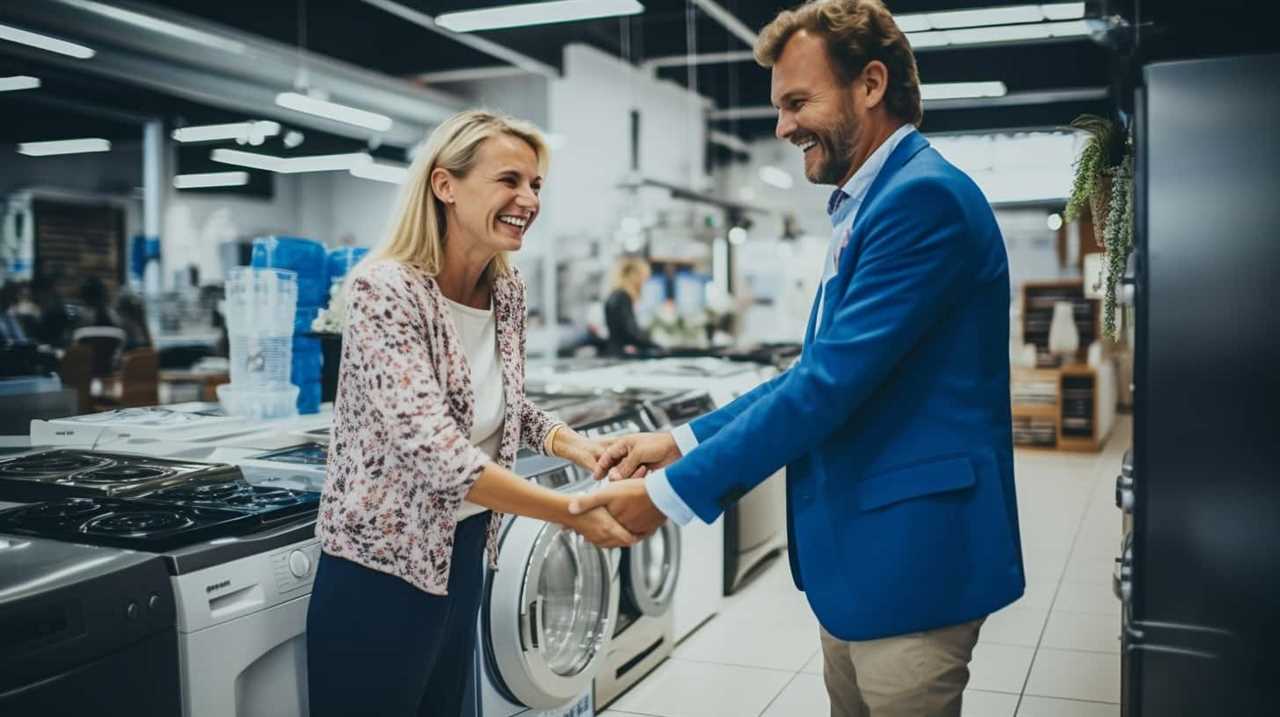
In general, air conditioners are designed to cool indoor spaces by removing heat from the air and expelling it outside. This process requires a significant amount of energy, especially during hot summer months.
Additionally, air conditioners require regular maintenance to ensure optimal performance and energy efficiency. This includes cleaning or replacing filters, checking refrigerant levels, and inspecting the overall condition of the unit. Neglecting proper maintenance can lead to reduced efficiency and increased energy consumption, as well as higher maintenance costs in the long run.
Transitioning into the subsequent section about water heaters, it is important to note that they also contribute to high energy consumption in households.
Water Heaters
Water heaters are a crucial appliance in many households, accounting for a significant portion of energy usage.
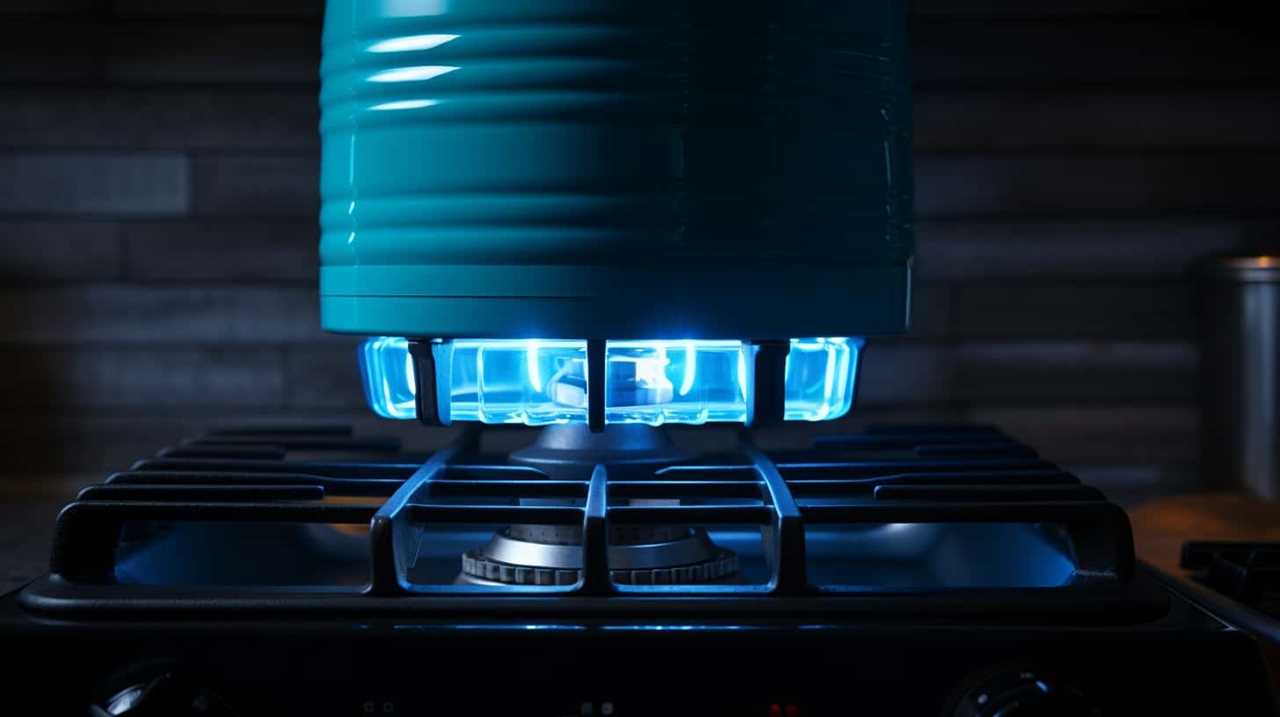
To address this, energy-efficient water heaters have been developed to minimize energy consumption and reduce costs.
Additionally, exploring alternatives to traditional water heaters, such as tankless or solar-powered options, can further optimize energy efficiency and sustainability.
Energy-Efficient Water Heaters
Energy-efficient water heaters are one of the most electricity-consuming appliances in households. Traditional water heaters are known for their high energy consumption and inefficiency. However, energy-efficient water heaters offer a solution to this problem.
These water heaters are designed to minimize energy wastage and maximize performance. They utilize advanced technologies such as heat pumps, condensing technology, and improved insulation to reduce energy consumption.
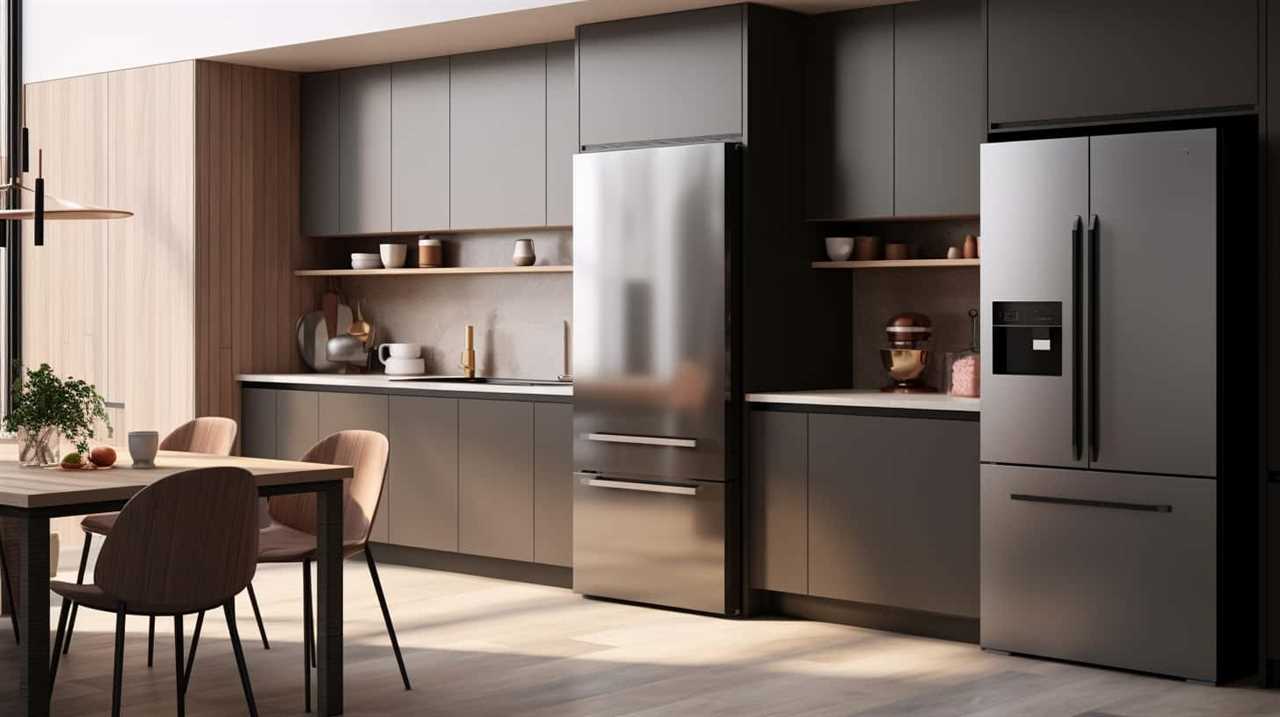
The benefits of energy-efficient water heaters include lower energy bills, reduced greenhouse gas emissions, and longer lifespan. By using less electricity, these water heaters help homeowners save money while also contributing to a more sustainable environment.
Therefore, investing in energy-efficient water heaters is a wise choice for those looking to reduce their energy consumption and carbon footprint.
Now, let’s explore the alternatives to traditional water heaters.
Alternatives to Water Heaters?
One alternative to traditional water heaters is the use of heat pump technology. Heat pumps are energy efficient alternatives that can provide hot water for household use. They work by extracting heat from the air or ground and transferring it to the water, using significantly less energy compared to conventional water heaters.
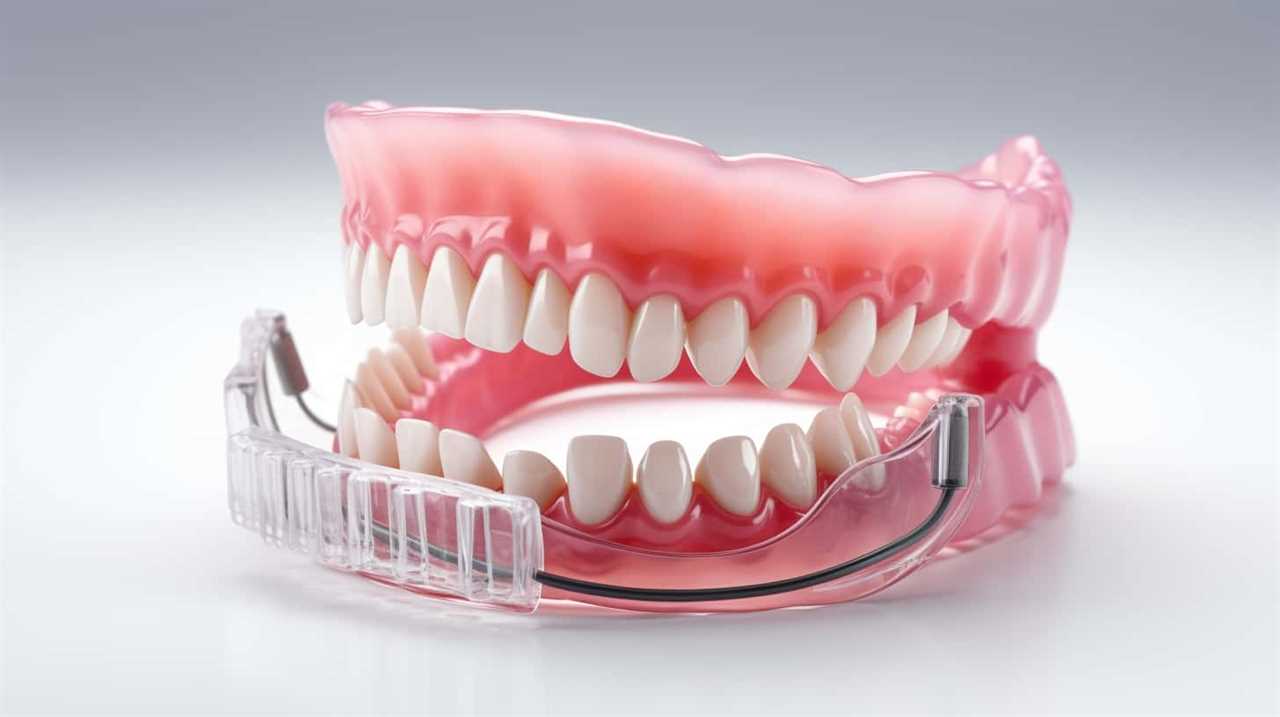
To provide a cost-effective option for homeowners, heat pump water heaters come with various benefits:
- Energy savings: Heat pumps can reduce energy consumption by up to 60% compared to conventional water heaters, resulting in lower utility bills.
- Environmental friendliness: By utilizing renewable energy sources, such as air or ground heat, heat pump water heaters contribute to reducing greenhouse gas emissions.
- Long-term savings: Although heat pump water heaters may have a higher upfront cost, their energy efficiency and durability can lead to significant long-term savings.
Considering the energy-efficient alternatives and cost-effective options available, heat pump technology is a viable choice when considering alternatives to traditional water heaters.
Clothes Dryers
Clothes dryers are one of the most energy-intensive appliances in households.
However, there are energy-efficient alternatives available that can help reduce electricity consumption.
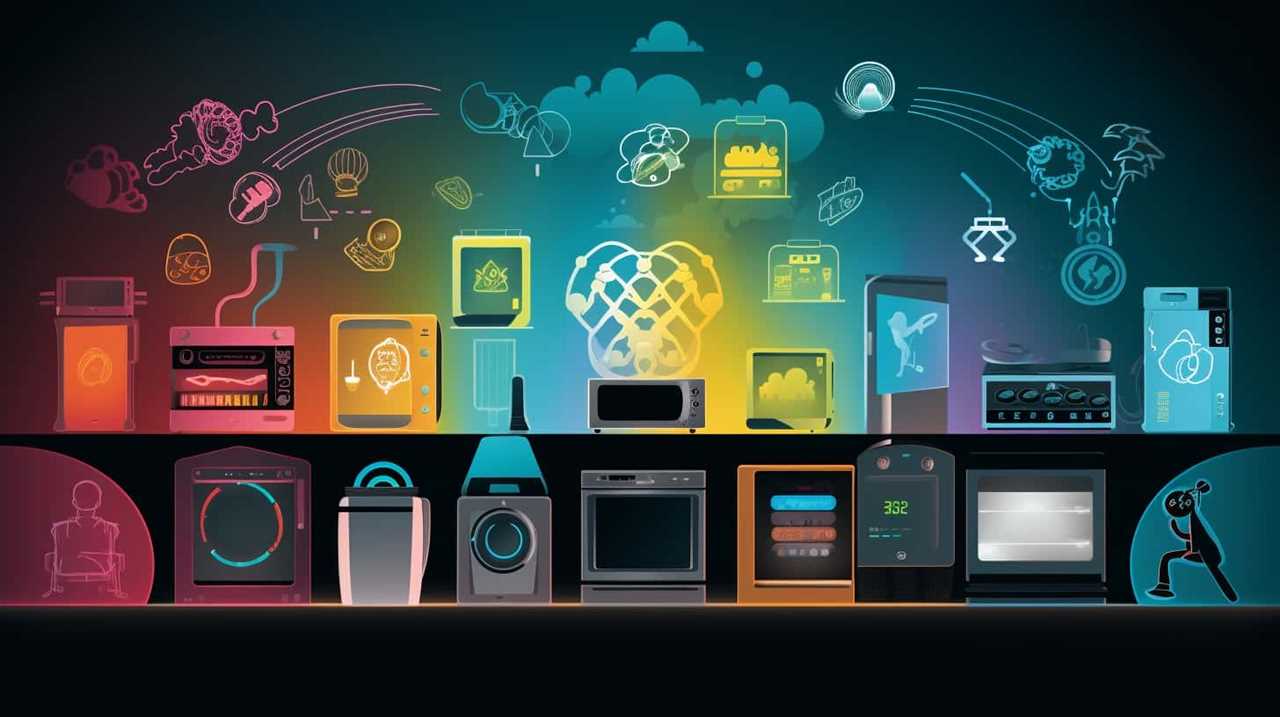
These alternatives include heat pump dryers, which use significantly less energy than traditional electric dryers.
Energy-Efficient Dryer Alternatives
What alternative appliances can be used for drying clothes that consume less electricity?
When it comes to energy-efficient dryer options, there are alternatives that can significantly contribute to reducing energy consumption in laundry. Here are three options to consider:
- Clotheslines: Traditional clotheslines are the most energy-efficient way to dry clothes. By utilizing solar and wind energy, clotheslines eliminate the need for electricity altogether. Not only does this reduce your carbon footprint, but it also saves on utility bills.
- Drying Racks: Indoor drying racks are convenient alternatives to electric dryers. They provide ample space to hang clothes and allow them to air dry naturally. Drying racks are especially suitable for delicate garments that require gentle drying.
- Spin Dryers: Spin dryers are compact appliances that use centrifugal force to extract excess moisture from clothes. They require much less energy compared to traditional electric dryers and are ideal for small spaces.
Impact on Electricity Bill
The electricity consumption of electric dryers can have a significant impact on monthly utility bills. Clothes dryers are one of the most energy-intensive appliances in a household, often accounting for a large portion of the electricity bill.
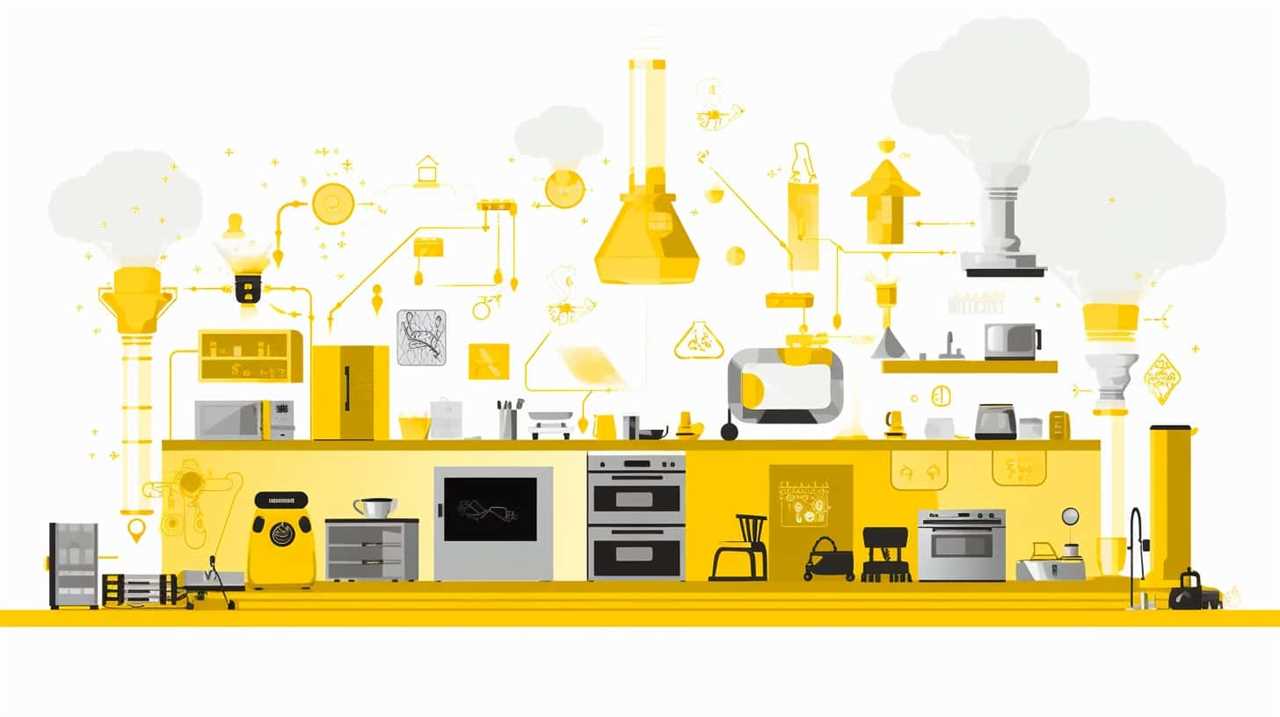
To reduce electricity bills, it is important to employ energy-saving tips specifically for clothes dryers. One approach is to ensure that the dryer is fully loaded each time it is used. This maximizes the efficiency of the dryer and reduces the number of cycles required.
Another effective tip is to use the moisture sensor feature if available, which automatically shuts off the dryer when the clothes are dry. Regular maintenance, such as cleaning the lint filter and ensuring proper ventilation, is also crucial for optimal performance and energy efficiency.
Monitoring energy consumption is essential for cost savings, as it allows homeowners to identify areas of high energy usage and make necessary adjustments. By implementing these energy-saving strategies and closely monitoring energy consumption, households can significantly reduce their electricity bills.
Electric Furnaces
Electric furnaces are energy-intensive devices that are commonly used for heating residential and commercial spaces. These appliances require regular maintenance to ensure their efficient operation and longevity.
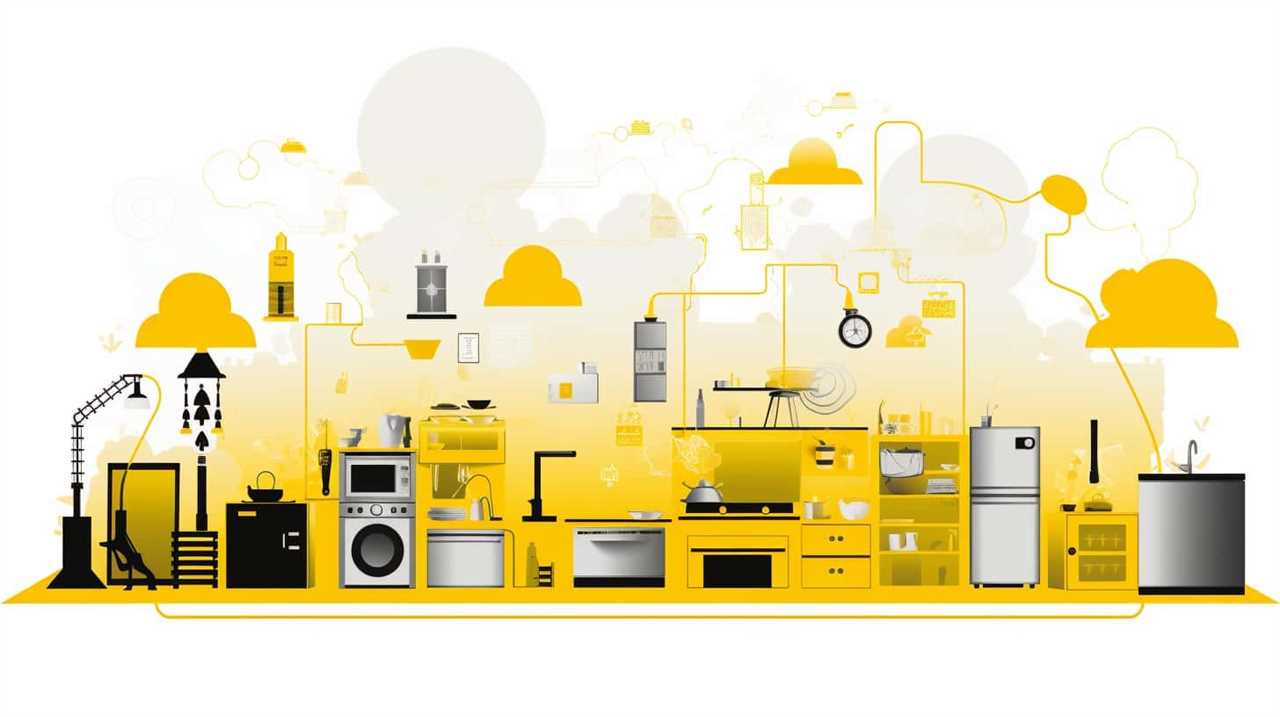
Here are three key benefits of electric furnaces:
- Energy Efficiency: Electric furnaces have high energy efficiency ratings, making them a cost-effective option for heating. They convert almost all the electricity they consume into heat, minimizing wasted energy.
- Environmental Friendliness: Electric furnaces do not produce any greenhouse gas emissions during operation, unlike furnaces that use fossil fuels such as oil or gas. This makes them a cleaner and more eco-friendly heating option.
- Safety: Electric furnaces do not use combustion to generate heat, eliminating the risk of carbon monoxide leaks. Additionally, they do not require any fuel storage, reducing the potential for accidents or fires.
Regular electric furnace maintenance, including filter cleaning and inspection by a professional technician, is crucial to ensure optimal performance and energy efficiency.
Electric Stoves and Ovens
Electric stoves and ovens consume significant amounts of electricity to efficiently cook and bake food. When it comes to electric stove safety, there are several factors to consider.
First, ensure that the stove is properly installed and grounded to prevent electrical shocks. It’s important to keep the stove clean and free from any spills or debris that could potentially cause a fire. Additionally, always use caution when handling hot pots and pans to avoid burns or accidents.

Now, let’s discuss the benefits of electric ovens. Electric ovens offer precise temperature control, allowing for consistent and even cooking. They also heat up quickly and provide a more stable cooking environment. Furthermore, electric ovens are often more energy-efficient compared to their gas counterparts, resulting in lower energy bills.
Refrigerators
Refrigerators are one of the most power-hungry household appliances, consuming a significant amount of electricity. To help you make informed choices and reduce your energy consumption, here are three important points to consider:
- Energy efficient refrigerator options: When purchasing a new refrigerator, look for models that are ENERGY STAR certified. These appliances are designed to consume less energy without compromising performance. They often incorporate features like improved insulation, LED lighting, and smart temperature controls.
- Proper refrigerator maintenance: Regular maintenance can ensure the optimal performance of your refrigerator. Clean the condenser coils at least twice a year to remove dust and debris, which can hinder heat transfer and increase energy consumption. Additionally, check the door seals for any leaks and replace them if necessary to maintain proper temperature control.
- Temperature settings: Set your refrigerator temperature to the manufacturer’s recommended level, typically between 35 and 38 degrees Fahrenheit (1.7 to 3.3 degrees Celsius). Avoid setting it lower than necessary, as every degree decrease can significantly increase energy usage.
Freezers
Freezers, another power-intensive household appliance, also consume a significant amount of electricity. These appliances are designed to maintain a low temperature for the purpose of preserving food items for extended periods. The energy consumption of freezers is primarily attributed to the need for continuous temperature control.
Freezers work by removing heat from the storage compartment and dissipating it into the surrounding environment. This process requires the operation of a compressor, which compresses and expands a refrigerant gas to transfer heat. The compressor is responsible for the majority of the energy consumption in a freezer.

Additionally, the insulation of the freezer plays a crucial role in its energy efficiency. Well-insulated freezers minimize heat exchange with the surroundings, reducing the energy required for temperature control.
Dishwashers
Furthermore, another household appliance that consumes a substantial amount of electricity is the dishwasher, which is closely related to freezers in terms of power consumption.
When it comes to energy efficiency, not all dishwashers are created equal. Here are three key factors to consider:
- Energy efficient dishwasher options: Look for dishwashers with an Energy Star rating, as these models meet strict energy efficiency guidelines set by the Environmental Protection Agency. They are designed to use less water and electricity, saving you money on utility bills.
- Impact of dishwashers on water consumption: Traditional dishwashers can use up to 10 gallons of water per cycle, while newer models with efficient water usage features can reduce water consumption to as little as 3 gallons per cycle. This not only helps to conserve water but also reduces the energy needed to heat the water.
- Cycle options and settings: Some dishwashers offer eco-friendly or energy-saving cycles that use less water and electricity. Additionally, choosing a dishwasher with adjustable settings allows you to customize the cleaning process based on the load size and level of dirtiness, further optimizing energy consumption.
Considering these factors can help you make an informed decision when choosing an energy-efficient dishwasher that not only saves electricity but also minimizes its impact on water consumption.
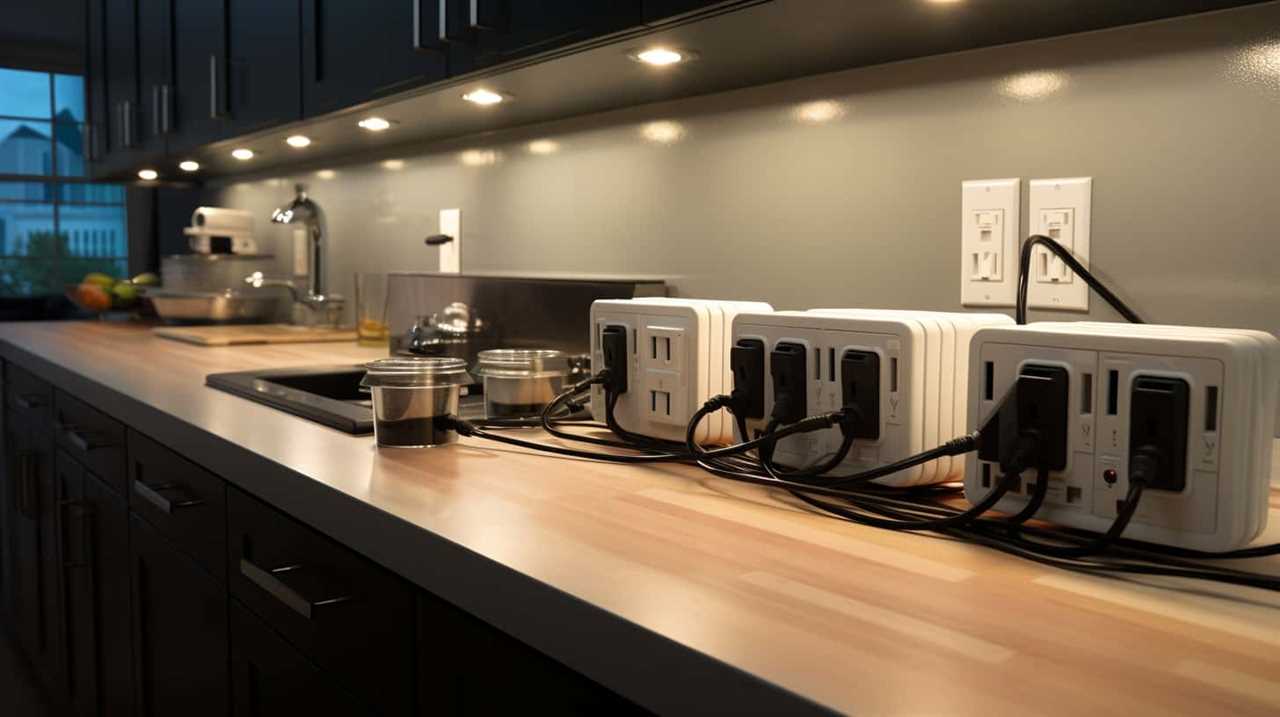
With this knowledge, let’s now move on to the next household appliance: washing machines.
Washing Machines
When it comes to energy-efficient washing machines, consumers have a variety of options to choose from. These machines are designed to reduce electricity consumption and water usage, making them a more sustainable choice.
Additionally, it is important to consider the environmental impact of washing machines, as they can contribute to water and air pollution.
As alternatives to traditional washing machines, some individuals may opt for hand-washing or using laundromats to reduce their energy consumption.

Energy-Efficient Washing Machines
Energy-efficient washing machines, designed to minimize electricity consumption, are becoming increasingly popular among environmentally-conscious consumers. These modern appliances offer several benefits, making them a wise choice for those looking to reduce their energy usage and environmental footprint.
Here are three reasons why energy-efficient washing machines are a great investment:
- Energy saving laundry techniques: Energy-efficient washing machines incorporate advanced technologies such as sensors that adjust water levels and cycle times based on the load size. This ensures optimal energy usage and reduces unnecessary wastage.
- Benefits of front loading washing machines: Front loading machines are known for their energy efficiency. They use less water, detergent, and electricity compared to top-loading machines. Additionally, their design allows for higher spin speeds, resulting in faster drying times and further energy savings.
- Cost savings: While energy-efficient washing machines may have a higher upfront cost, they offer significant savings in the long run. With reduced electricity consumption, users can expect lower utility bills, resulting in cost savings over time.
These energy-efficient washing machines not only help individuals save money but also contribute to a greener environment.
Environmental Impact of Washing
To understand the environmental impact of washing machines, it is important to consider their energy consumption and water usage.

Washing machines have made our lives easier by automating the laundry process, but they also have a significant impact on the environment.
The energy consumption of washing machines varies depending on the model and settings used. Additionally, water consumption is a major concern, as washing machines use a significant amount of water for each cycle.
The environmental impact of detergent should also be taken into account, as some chemicals in detergents can be harmful to aquatic life when they enter the water supply.
Considering these factors, it is crucial to explore alternatives to traditional washing machines that can minimize their environmental impact.
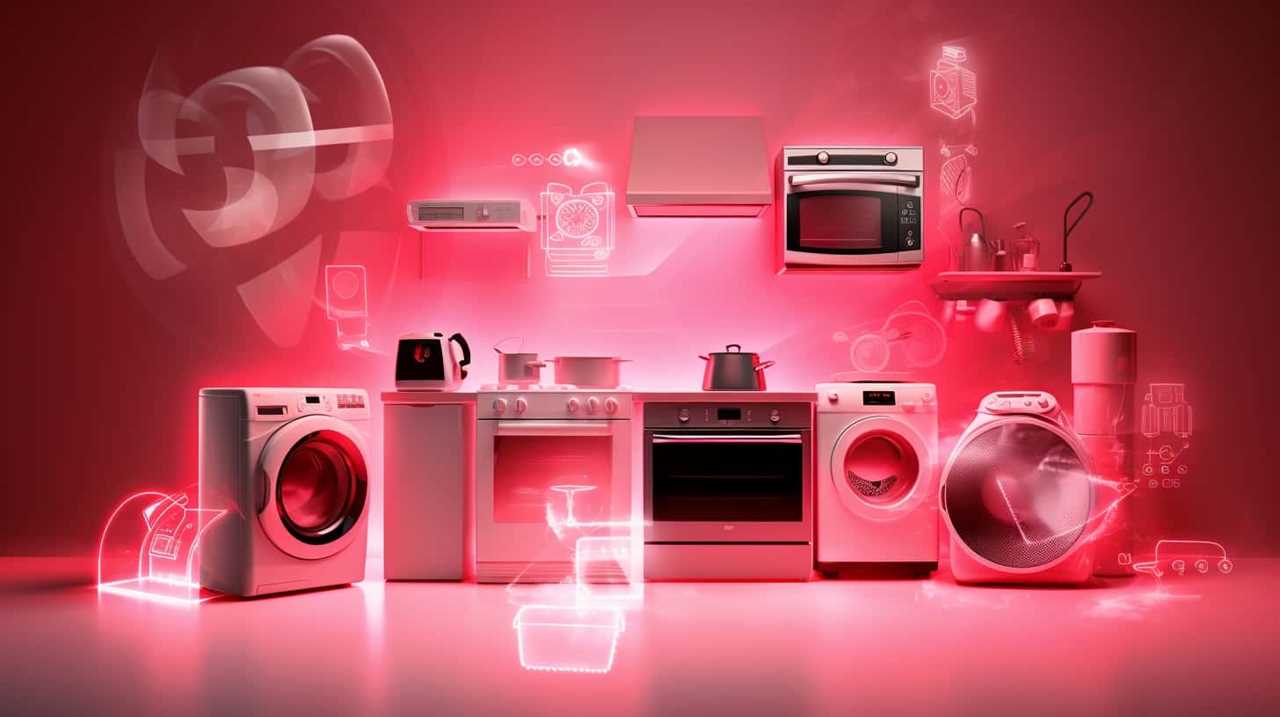
Alternatives to Washing Machines?
The environmental impact of washing machines prompts the exploration of alternative options to traditional washing machines. While washing machines offer convenience and efficiency, they consume significant amounts of water and energy. By considering alternatives, individuals can reduce their ecological footprint and embrace more sustainable practices.
Here are three alternatives to traditional washing machines:
- Handwashing: This method requires manual effort but offers numerous benefits. It allows for greater control over the cleaning process, reducing the risk of damage to delicate fabrics. Handwashing also requires less water and energy, making it a more environmentally friendly option.
- Portable washing machines: These compact devices are ideal for small living spaces or individuals who frequently travel. They use less water and have lower energy consumption compared to traditional washing machines.
- Laundry services: Utilizing laundry services, such as laundromats or drop-off services, can be a convenient alternative to owning a washing machine. These services often use more efficient machines and may offer environmentally friendly detergents.
Microwaves
Microwaves consume a significant amount of electricity due to their high wattage and usage frequency. When it comes to microwave safety, it is important to follow certain guidelines to prevent accidents and ensure optimal performance.
Firstly, it is crucial to avoid using metal or aluminum foil inside the microwave, as they can cause sparks and damage the appliance.
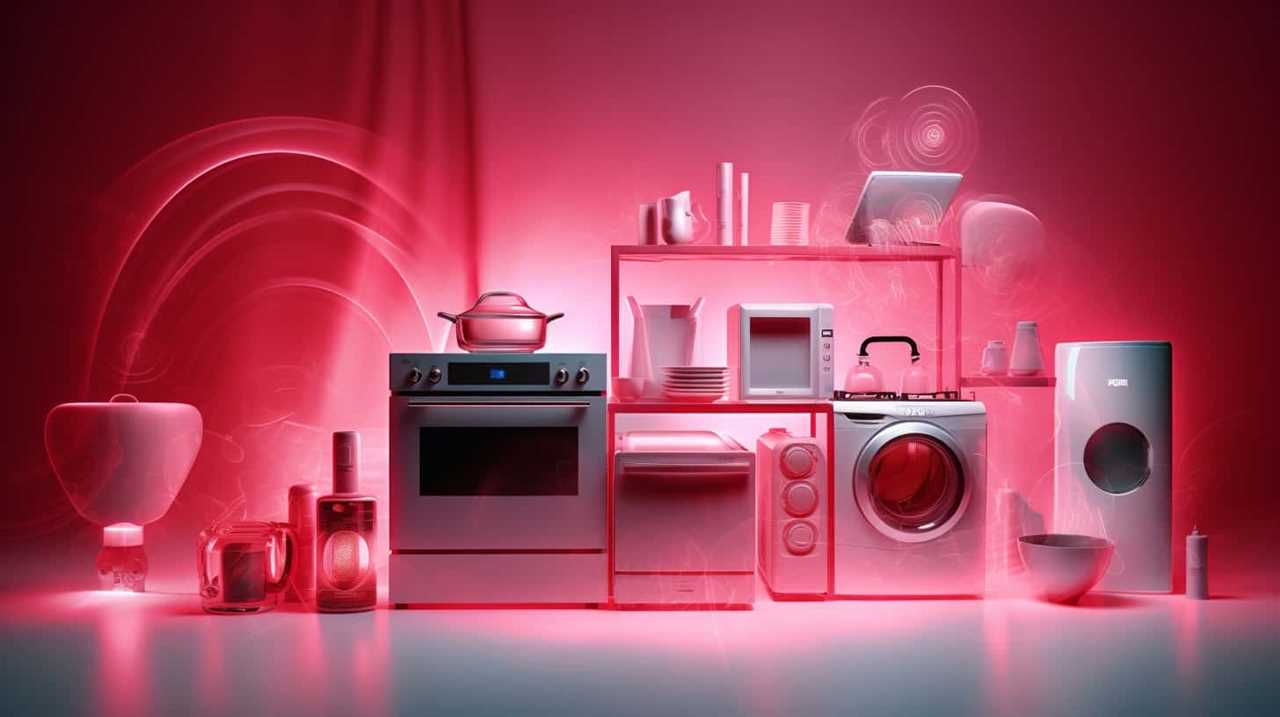
It is also recommended to use microwave-safe containers and covers to prevent leakage or contamination.
Additionally, it is advisable to stir or rotate food during cooking to ensure even heating and to avoid potential hot spots.
To maximize energy efficiency, it is recommended to use the appropriate power level for different types of food and to avoid excessive cooking times.
Electric Kettles
Electric kettles are a common appliance in households, but their energy consumption can vary depending on their efficiency. To reduce electricity consumption, consumers can opt for energy-efficient kettle options that are designed to use less power without compromising performance.

Energy-Efficient Kettle Options
When considering energy-efficient kettle options, it is crucial to understand their impact on electricity bills. By opting for an energy-efficient kettle, you can reduce your electricity consumption and save money in the long run.
Here are three reasons why investing in an energy-efficient kettle is a wise choice:
- Lower energy consumption: Energy-efficient kettles are designed to heat water quickly and efficiently, using less electricity than standard kettles.
- Reduced standby power: Energy-efficient kettles have minimal standby power, meaning they consume less energy when not in use.
- Temperature control features: Many energy-efficient kettles offer temperature control settings, allowing you to heat water to your desired temperature precisely.
Choosing an energy-efficient kettle can have a significant impact on your electricity bills, making it a worthwhile investment for those seeking to minimize their energy usage and maximize savings.
Impact on Electricity Bills
When considering the impact on electricity bills, it is important to examine the energy usage of electric kettles. Electric kettles are commonly used appliances in households and offices, but their energy consumption can vary depending on several factors.

The wattage of the kettle, the amount of water being heated, and the frequency of use all contribute to the overall energy consumption. To reduce the impact on energy consumption and save on electricity bills, there are several cost-saving measures that can be implemented.
For instance, choosing an electric kettle with a lower wattage can significantly reduce energy usage. Additionally, boiling only the necessary amount of water and avoiding unnecessary reboiling can also help in conserving energy.
Space Heaters
Space heaters consume a significant amount of energy and are known for their high electricity usage. When considering energy consumption, it is essential to be aware of the impact space heaters can have on your electricity bills. Here are three key points to consider:
- Energy Efficiency: Space heaters vary in their energy efficiency ratings. Look for models that are Energy Star certified, as they meet strict energy efficiency guidelines set by the Environmental Protection Agency. These heaters are designed to save energy and reduce electricity usage.
- Heating Capacity: The size and heating capacity of a space heater play a crucial role in its energy consumption. Choosing the right size heater for your space ensures optimal heating efficiency and reduces unnecessary energy waste.
- Safety Measures: Space heaters can pose safety risks if not used properly. Always follow safety guidelines, such as keeping heaters away from flammable materials, using them in well-ventilated areas, and never leaving them unattended. Additionally, consider investing in models with safety features like tip-over protection and overheat protection.
Pool Pumps
Pool pumps are another major contributor to high electricity usage in households. These pumps are essential for circulating water in the pool, but they can consume a significant amount of energy.

Fortunately, there are alternatives to traditional pool pumps that can help reduce electricity consumption. One option is to use a variable-speed pool pump, which allows for adjusting the pump’s speed based on the pool’s needs. This can result in significant energy savings compared to single-speed pumps.
Another energy-saving pool pump option is the use of high-efficiency pumps, which are designed to operate more efficiently and consume less electricity.
Additionally, installing a pool timer can help control the pump’s usage and reduce energy waste.
Electric Vehicles
Electric vehicles are becoming increasingly popular, with a growing number of households opting for these energy-efficient cars. As the demand for electric vehicles rises, there are two key factors that need to be considered: electric vehicle charging infrastructure and range anxiety.
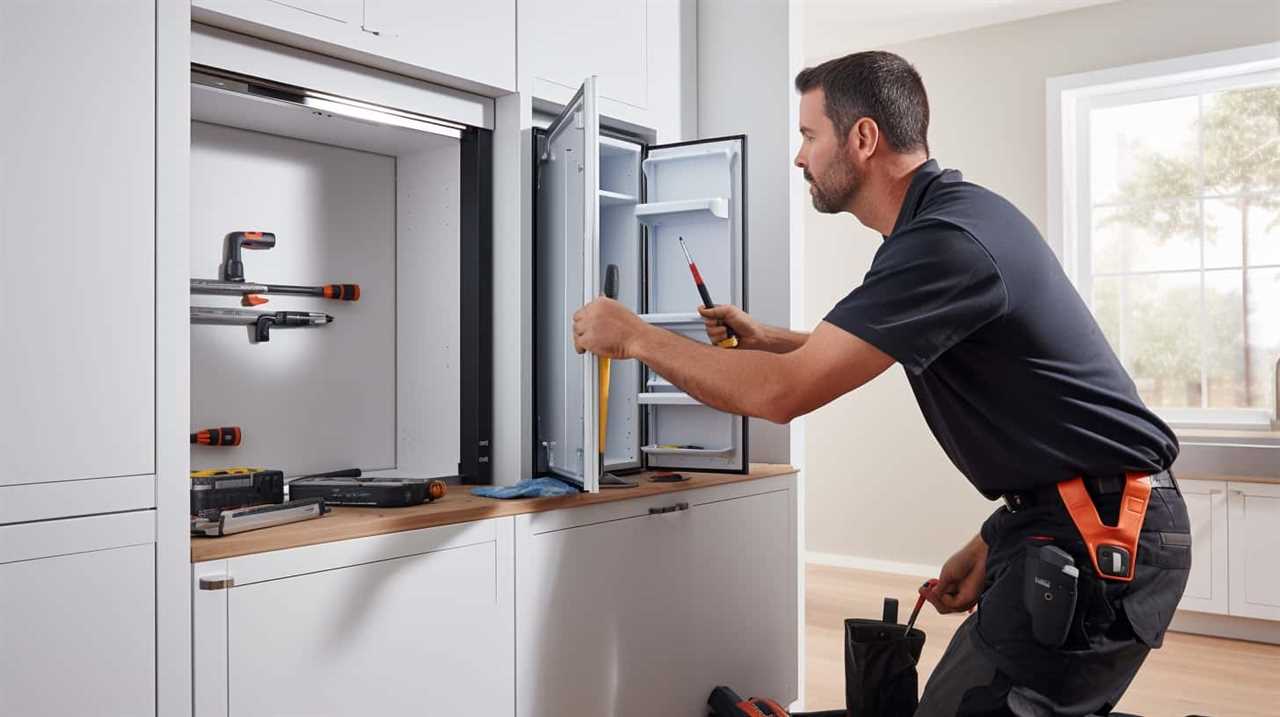
- Electric vehicle charging infrastructure: The availability and accessibility of charging stations play a crucial role in the adoption of electric vehicles. A well-developed charging infrastructure ensures that EV owners have convenient access to charging points, enabling them to travel longer distances without worry.
- Range anxiety in electric vehicles: One of the main concerns for potential EV owners is the fear of running out of battery power. Range anxiety refers to the anxiety or fear of not being able to reach their destination due to limited electric range. To address this issue, manufacturers are continuously improving battery technology to increase the range of electric vehicles and alleviate range anxiety.
- Battery charging time: Another aspect that affects the adoption of electric vehicles is the time it takes to charge the battery. Fast-charging technologies are being developed to reduce charging times and provide EV owners with a more convenient and efficient charging experience.
With advancements in charging infrastructure and battery technology, electric vehicles are becoming a viable option for more households, offering a sustainable and efficient mode of transportation.
Frequently Asked Questions
How Can I Reduce the Electricity Consumption of My Air Conditioner?
To reduce electricity consumption of an air conditioner, consider adjusting the thermostat to a higher temperature, ensuring proper insulation, cleaning or replacing air filters regularly, and utilizing ceiling fans for added cooling.
What Factors Should I Consider When Choosing a Water Heater for Energy Efficiency?
When choosing a water heater for energy efficiency, two important factors to consider are cost effectiveness and insulation quality. These factors play a crucial role in minimizing electricity consumption and maximizing energy savings.
Is It More Energy-Efficient to Dry Clothes Using a Clothes Dryer or by Air-Drying Them?
When comparing air drying and using a clothes dryer, it is important to consider the energy efficiency of each method. Air drying clothes is generally more energy-efficient as it does not require electricity to operate, resulting in lower energy consumption.

Are Electric Stoves and Ovens More Energy-Efficient Than Their Gas Counterparts?
Electric vs. gas stoves: which is more cost effective? Comparing the energy efficiency of electric and gas ovens, it is essential to consider factors such as fuel prices, insulation, and cooking habits to determine the most economical option.
Can I Save Energy by Adjusting the Temperature Settings of My Refrigerator and Freezer?
Adjusting the temperature settings of your refrigerator and freezer can lead to energy savings. By optimizing the temperature, you can reduce energy consumption without compromising the quality and safety of your stored food items.
Conclusion
In conclusion, it is evident that certain electric appliances consume a significant amount of electricity. Air conditioners, water heaters, clothes dryers, electric furnaces, stoves and ovens, kettles, space heaters, pool pumps, and electric vehicles are among the top consumers.
While some may argue that energy-efficient alternatives can mitigate this issue, it is crucial to acknowledge that these appliances are essential for modern living. Finding a balance between comfort and energy consumption is necessary.







